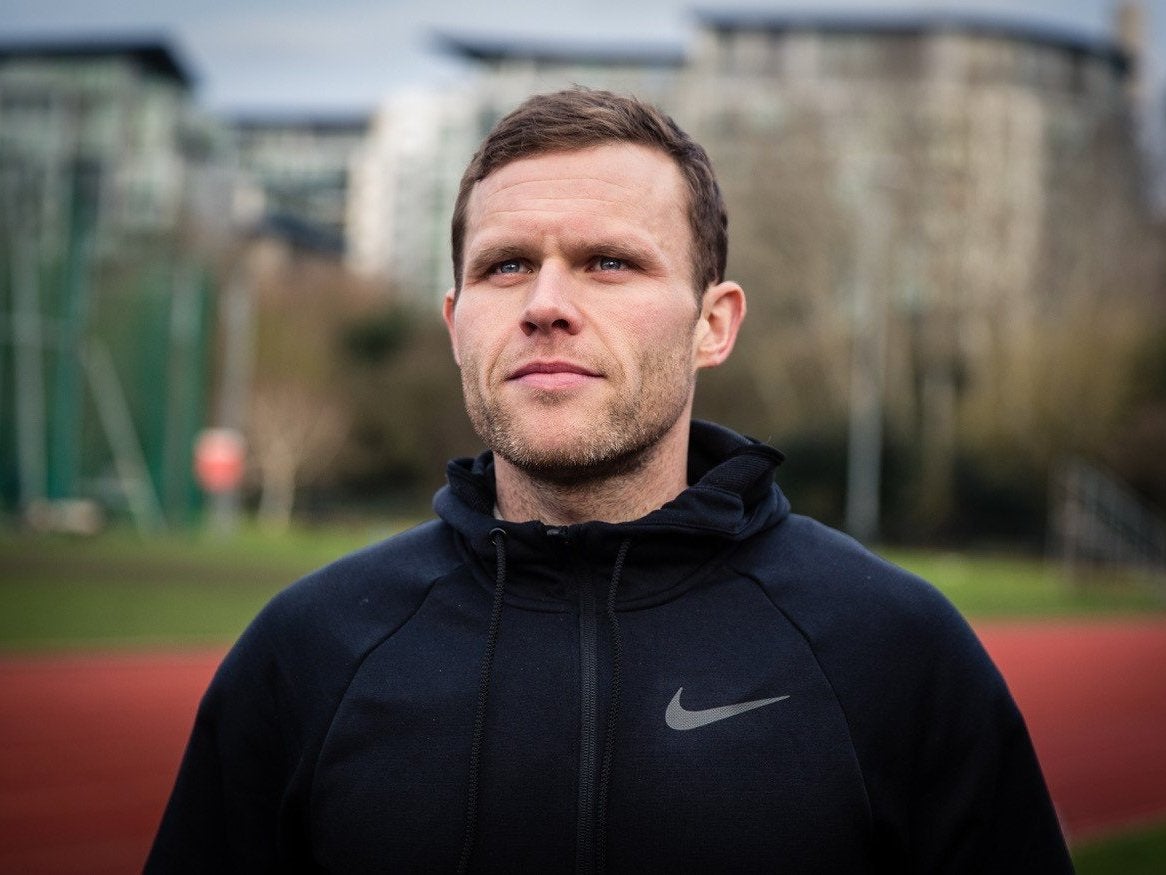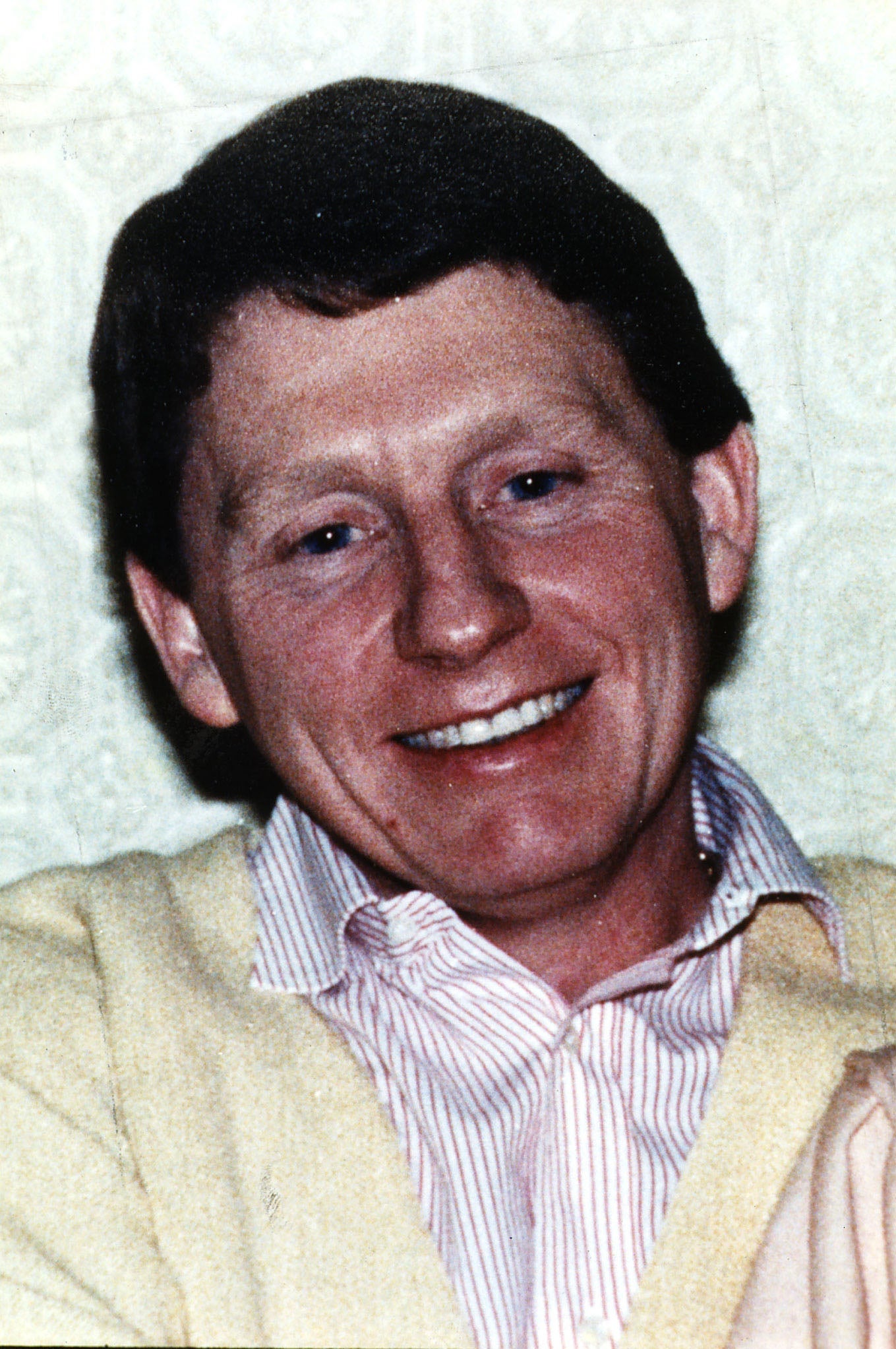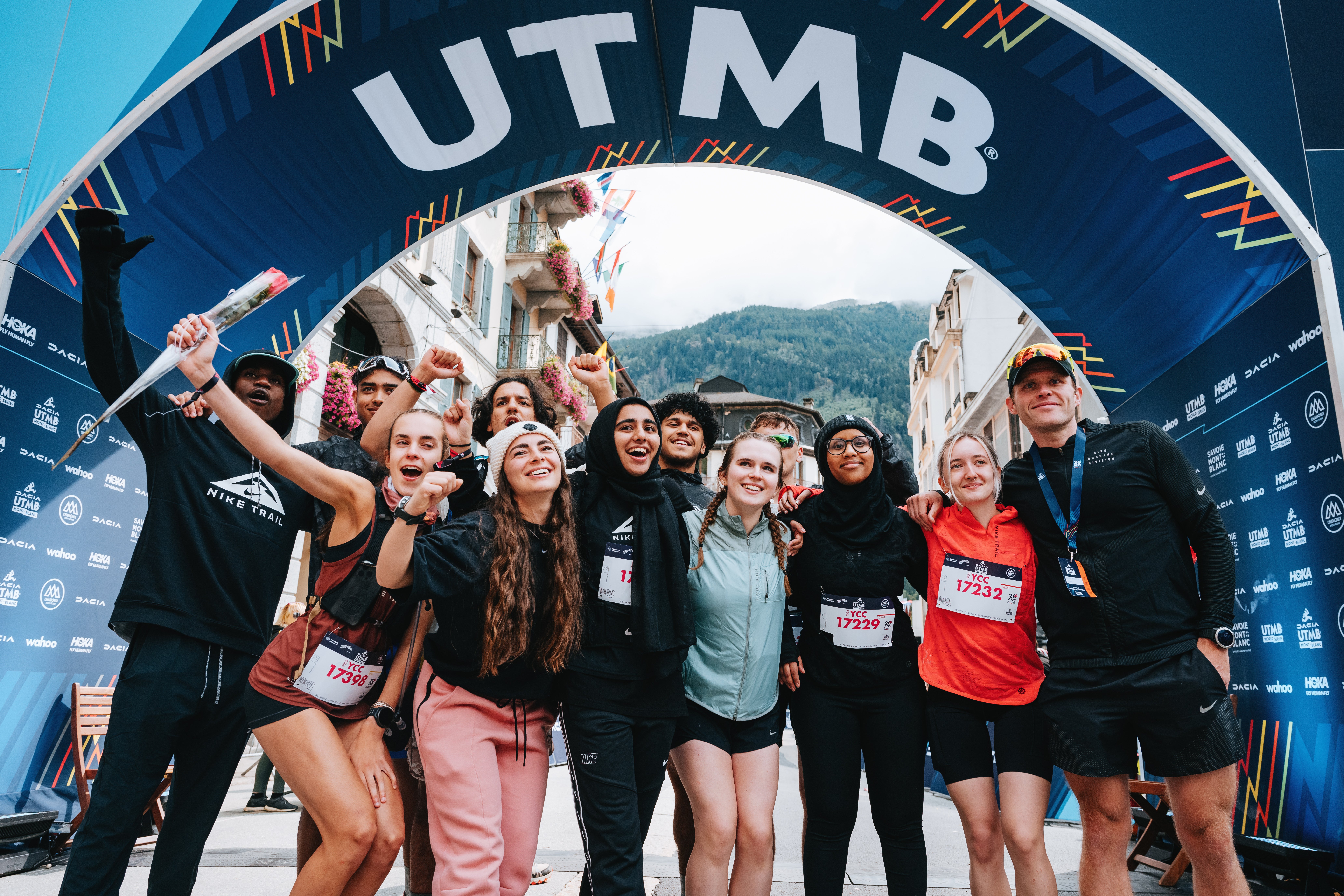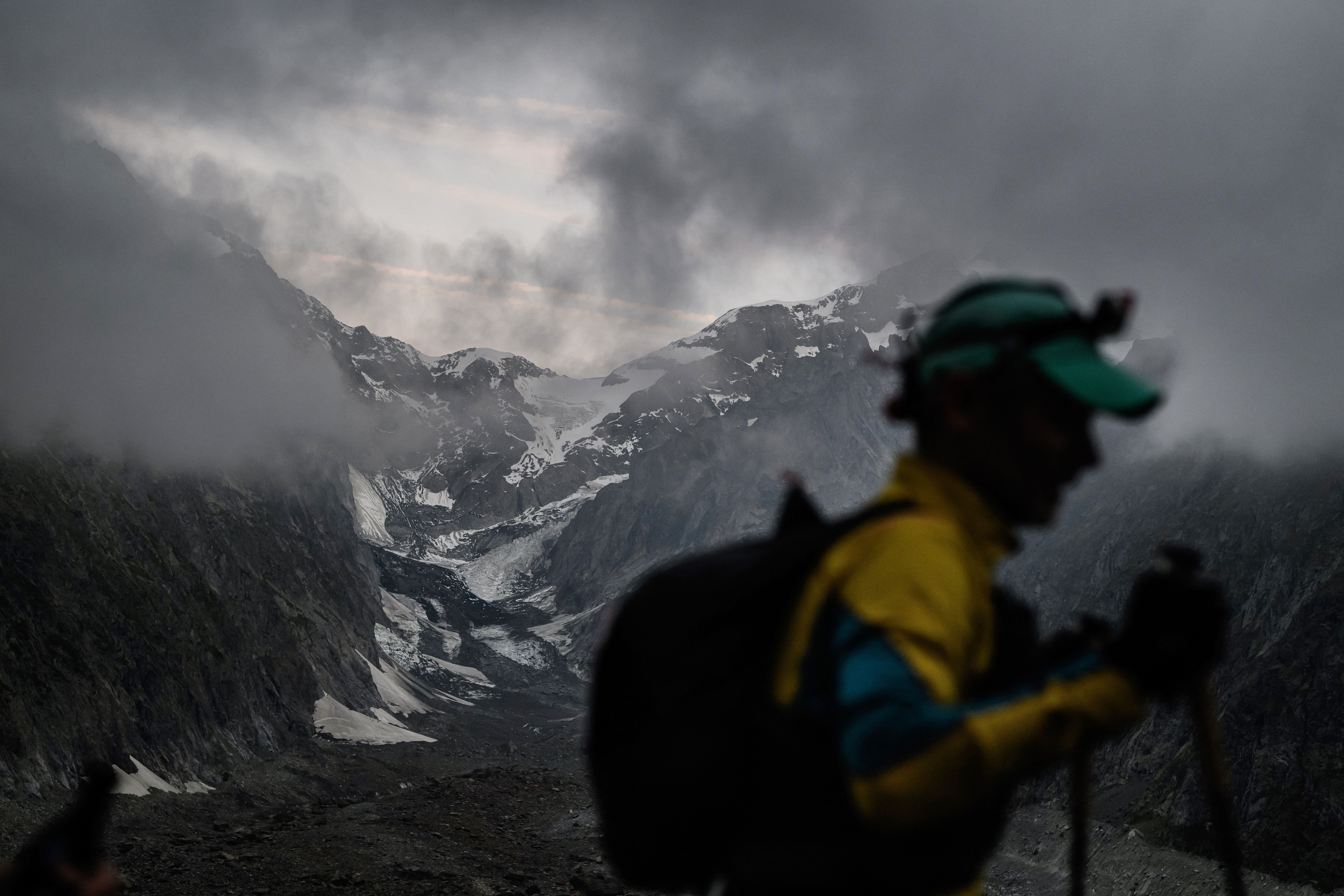Trail and error: This ex-robber uses ultra running to stop inner-city kids from following in his footsteps
With an uncle who was the criminal kingpin behind one of the UK’s largest-ever armed robberies, it was perhaps always inevitable that John McAvoy would spend his best years behind bars. But a chance meeting in a prison gym allowed him to turn his life around. Now he tells Jim White about his crusade to stop other inner-city children from repeating his mistakes


There was a moment during the premier screening of a new documentary called Alpine Run Project that had the entire audience chuckling. The film is about a dozen youngsters from inner-city Britain who this August competed in the Ultra Trail Mont Blanc (UTMB), a race notorious for its scale and difficulty. The director had given a GoPro camera to Courtney, an 18-year-old who, before she put on her running shoes and took to the paths circumnavigating Europe’s tallest peak, had never before been out of Stockport.
“S***, it’s effin hard work uphill,” she pants as she toils up a mountain path. “Surely to God, we’ve got to be coming down soon.”
At which point the film cuts to her hurtling down some vertiginous scree.
“Turns out,” she says as she stumbles and scrabbles, “going down’s even bloody harder.”
But Courtney finished the race. As did all of the 12. Here’s the thing, though: none of them had ever done much in the way of running before, they had barely ever been up a hill, never mind overcoming a course as tricky as the one they did at the UTMB. Yet here they were, absolute novices all, conquering the toughest race around. Indeed one of them – Eleanor Mattos – won her under-18 age group category, the first British female ever to do so.
“It was some journey,” says John McAvoy, the professional Ironman and trail runner who set up the project and led the dozen through their year-long preparations. “I have to be honest, I never thought it would be as powerful as it was. How they grew so much in confidence. It was like magic.”
But I didn’t just want to be an armed robber. I wanted to be the best around
Watching the change in the youngsters’ outlook, how they had been filled with ambition, determination and resilience, he adds, was as strong evidence as you could ever get for the transformative power of sport. And if anyone knows about sport’s unique ability to change lives then it is McAvoy. After all, it completely transformed his.
If you watched The Gold, the recent BBC dramatisation of the Brink’s-Mat robbery, John’s surname will be familiar. Born into a south London crime dynasty, his uncle was Micky McAvoy, the man who led the gang into one of the country’s biggest-ever armed robberies. McAvoy recalls how his family connection brought him a kind of inverted respect when he was growing up.
“I’d go in a shop and the shopkeeper would go: ‘You’re Micky McAvoy’s nephew, you’re all right son, no need to pay for that’,” he recalls. “When I was 10 they did a TV movie called Fool’s Gold with Sean Bean playing my uncle. Seeing that I thought armed robbery was the most glamorous thing in the world. I said to myself: right I’m going to do that, like Uncle Micky. But I didn’t just want to be an armed robber. I wanted to be the best around.”
Not that he was that good. By the time he was 18, he was in prison, after he was caught robbing a van filling cash points. His sentence completed, he was released and, by now in his early twenties, retired to the “Costa del Crime” to enjoy the craftily concealed proceeds of his heist. He came back to Britain for a mate’s wedding and got involved in a robbery to raise a bit of cash. Unbeknownst to him, the shotgun-toting gang he had joined was under police surveillance. After being caught red-handed, he was given a 16-year sentence.
“First I was in Belmarsh because they were convinced with my family connections I’d get lifted out of a normal prison,” he says.

Then he pauses and smiles.
“They were probably right.”
On his first turn around the exercise yard, he realised there were only six other inmates walking with him.
“Gradually it dawned on me who they were,” he recalls. “One was Abu Hamza and the others were the guys who were in there for trying to blow up the tube, the 21/7 lot. That’s when I properly realised how much trouble I was in.”
Confined to his cell for 23 hours a day, he adopted an extraordinary regime.
“Prisoners throw themselves into education, or into drugs, or the gym; it’s all to do with escape. I started doing cell circuits: a thousand press-ups, a thousand sit-ups, a thousand burpees. Took me two hours a day. I was obsessively doing it. The feelgood hormones made me feel alive.”
And when, after two years of good behaviour, he was sent to a conventional prison in York, he hit the gym as often as he could.
“That’s when I first realised my capabilities,” he says. “I had no interest in sport, never did any as a kid, I didn’t know what was good, what was bad. They’d have fitness competitions at the prison and no one could get near me. I started to get a reputation as being the fittest prisoner in the system. I liked that.”
Still, he had no intention of changing. He was biding his time. Keeping his head down until he could get to an open prison. From there, the plan was, he was going to abscond, run off faster than ever and head to Spain, where he could renew his criminal career. Then, by chance, the prison gym got a new piece of kit: a rowing machine. The first time he went on it, the officer in charge spotted his results and realised this was something special.
“Darren Davies he’s called, and he changed my life,” McAvoy says of the officer.
Davies encouraged and helped him to hone and target his skills. Subsequently, while still inside but gifted special privileges, he broke the British record for rowing the marathon mileage, then smashed the world record for distance rowed in 24 hours.
“I remember Darren saying to me after I’d broken that record: ‘You know what John, you’ve got a gift. You’re not only fit, you can suffer. That is a powerful mixture’,” he recalls.
By the time he went to open prison, instead of trying to escape, all he wanted to do was see if he could match his indoor scores on the water.
This was how, the day after he was released in 2014, he found himself at the London Rowing Club in Putney. What a contrast the oak-panelled privilege of the place was to where he had spent the previous eight years.

“I was worried they’d look down on me. Instead what happened, from the moment I first came, was they embraced me,” he says. “My social circle changed overnight, from villains to sports people. Everyone was so helpful, guys who’d rowed at Cambridge giving me time, blokes who’d won at Henley helping me on the water, Alex Gregory who went to the Olympics helping me in the gym. I was suddenly surrounded by people who wanted to help.”
For a year, as he started to earn a living as a personal trainer, he told nobody at the club about his back story. When he decided to come clean, the president said to him: “John, we knew who you were the day you walked in here. Have you not heard of Google?”
As it happened, he hadn’t: no one in prison uses computers.
Yet despite the welcome, despite the manner in which the rowers treated him as one of their own, despite the fact he tried harder than he had ever tried before, he soon began to recognise that when it came to rowing, he had missed the boat.
“The fact was I took it up too late,” he says. “What I wanted to be was a professional sportsman at an elite level. I had no chance to do that in rowing. If you’re not in the GB system by 23, forget it.”
And he was then 10 years older than that, the prime of his life squandered.
Then someone mentioned the Iron Man triathlon to him. This is a sport in which mental resilience is as critical as cardiovascular capacity; it is a sport in which the ability to absorb pain is paramount; in short, it was a sport tailor-made for him. One thing, though: he had not ridden a bike since he was 12 and he couldn’t swim. But those were minor considerations for McAvoy. Six weeks after deciding this was the sport for him, he had completed his first Iron Man in a hugely respectable time of just over 11 hours (his best times now are around eight and a half hours, closer to the world record of 7 hours 40 minutes). He believes that the years spent behind bars gave him the steely resilience to become one of the toughest endurance athletes around.
“After all,” he says. “When you spent eight years of your life inside, what’s there to fear in a 2.4-mile swim followed by a 112-mile bike ride finished off with a 26.2-mile marathon?”
Within a year he had a sponsor, and, getting up every morning at 4.30am, training with an inhuman determination, he was on the championship circuit, making up for those lost years inside.
“If I’d carried on as I was I’d be dead,” he says of his former pathway. “Or they’d have banged me up and thrown away the key, which is the same thing. Sport saved my life.”
But the thing about McAvoy, even as he became a top-class competitor, travelling around the world to compete (albeit after he had informed his probation officer where he was going to comply with his licence conditions) he wanted to use his story to proselytise sport’s restorative power. And he has worked tirelessly ever since, encouraging others to follow his route out of the abyss. In the past five years, McAvoy, now aged 39, has got indoor rowing machines into seven prisons and started a competitive league between them. He helped introduce Park Run into more than a dozen prisons. Combining with Marcus Rashford’s school meal charity, he has initiated a nationwide programme of school holiday sports camps called Open Doors. Then came his most ambitious idea yet. It dawned on him as he was competing in the UTMB in the summer of 2022.
“I was running with Mont Blanc alongside me and I felt this overwhelming sense of emotion,” he says. “It was so powerful, so pure. I’ve done a lot of sport, but this one had a primaeval nature, it felt spiritually right, like this is what my body was designed to do. And I thought as I was doing it: I want others to experience that.”
So it was, supported by the charity Football Beyond Borders and backed by his sponsors Nike and JD Sport, he set up the Alpine Run Project and recruited a dozen youngsters from inner city Manchester, London and Newcastle. Some of them had grown up in care, some had been in trouble and others were simply drifting. And, with a group of experts in everything from nutrition to physiology to psychology, he trained them up. He invited a filmmaker to chart the process and brought his old prison officer mentor Davies on board to help. There is an emotional moment in the film in which he first introduces Davies to the youngsters as the man who saved his life.
“He did. My life was a car crash and Darren was there for me,” he tells The Independent. “I learned from him that if you want to help people, the most important quality is consistency. If you say you’re going to do something, do it. A lot of people in this country, in prison or just those stuck in bad places, didn’t have positive role models. They are suspicious of people who say they are going to help because they have been let down so often. They’ve heard the bulls***. If you are properly going to help, you have to deliver what you say you are going to.”
And McAvoy delivered all right. After setting up the Alpine Run Project, he organised training camps in the Peak District, he took the youngsters out to the almost vertical slopes of Alpe d’Huez, he wanted to open their eyes to new possibilities.
“These are young people who have never been in the mountains before,” he says. “Sure, it is about running, making them more active. But it’s more about giving them skills to believe in themselves, unlocking doors, taking them into new worlds. And the change that brings is remarkable.” And he mentions one of the runners, David, who grew up in care in Manchester and by the time he was 18 was living on his own in a B&B in Hastings.

“He was not really going anywhere,” he says. “Now he’s told me he’s going to become a youth worker. He’s already set up a trail running club with kids in Hastings.”
So successful did he believe the scheme was, culminating in the run back in August, that McAvoy is expanding it exponentially. It may well be a long way from the darker corners of Britain’s inner cities to Mont Blanc. But having made the journey himself, McAvoy is now determined thousands will follow him. So over the next five years, he wants to introduce over 100,000 teenagers to the delights of running in nature. With a team including Davies, and in collaboration with youth organisations across the UK, he intends to introduce trail running workshops, expeditions into the hills and consistent mentoring. Plus every year, a group of those who participate most successfully in his scheme will be taken to the Alps for the UTMB.
“It appears really hard, but that’s the point. It is a challenge that is doable,” he says of the Mont Blanc race. “The thing about this is it builds up resilience. It helps you harness what could be negative into positive. When I run, what happened in the past fuels me. Because I know what bad is. It teaches so much about what is achievable. The greatest experience of my life is not giving up on myself.”
Incidentally, his uncle Micky, the career criminal who was his role model when he was growing up, died in January of this year. McAvoy didn’t go to the funeral. He didn’t want to revisit that part of his life. Besides, he was busy that day, doing something more important: he was out training with his Alpine Run youngsters.
The Alpine Run Project documentary is available to stream from the Cut Media YouTube channel from 14 December.
Join our commenting forum
Join thought-provoking conversations, follow other Independent readers and see their replies
Comments
Bookmark popover
Removed from bookmarks